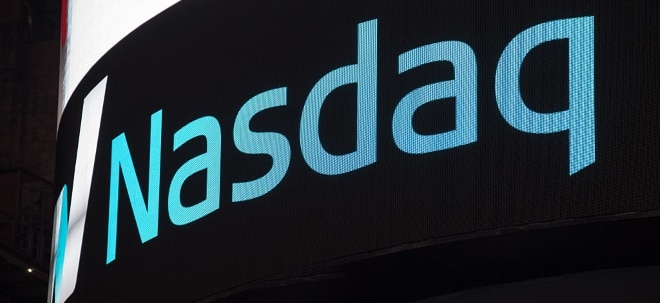Microsoft vs. Oracle: Which Cloud Stock Has More Fuel for Growth?
Werte in diesem Artikel
In the fiercely competitive cloud computing landscape, Microsoft MSFT and Oracle ORCL have emerged as significant players vying for market dominance. Both technology giants have deeply rooted histories in enterprise software, with Microsoft evolving from its Windows operating system foundation to become a cloud powerhouse, while Oracle built its empire on database technologies. As businesses worldwide accelerate their digital transformation initiatives, these companies continue to position themselves as essential partners in this journey. With artificial intelligence now driving the next wave of cloud innovation, comparing these two technology stalwarts offers valuable insights for investors seeking exposure to this high-growth sector. Let's delve deep and closely compare the fundamentals of the two stocks to determine which one is a better investment now.The Case for MSFT StockMicrosoft's cloud momentum continues to impress, with its Microsoft Cloud surpassing $40 billion in quarterly revenues for the first time in second-quarter fiscal 2025, representing robust 21% year-over-year growth. This performance demonstrates the company's successful transition from traditional software to cloud services. The Redmond-based tech giant has strategically positioned itself at the forefront of the AI revolution, with its AI business reaching an annual revenue run rate of $13 billion, growing 175% year over year.The Zacks Consensus Estimate for Microsoft’s fiscal 2025 revenues is pegged at $275.39 billion, suggesting 12.35% year-over-year growth. The consensus mark for earnings is pegged at $13.04 per share, indicating a 10.51% year-over-year increase. The figure has moved south by 0.2% over the past 30 days.See the Zacks Earnings Calendar to stay ahead of market-making news.Microsoft's strength lies in its comprehensive cloud ecosystem, spanning infrastructure (Azure), platform services, and software-as-a-service offerings. Azure, Microsoft's cloud infrastructure business, remains a key growth driver. Amazon Web Services, Google Cloud and Microsoft Azure combined accounted for a whopping 68% of the global cloud market in the fourth quarter of 2024, according to new data from IT market research firm Synergy.Microsoft has been steadily gaining share with fruitful strategic partnerships like one with OpenAI's APIs, exclusively running on Azure, providing Microsoft customers access to industry-leading AI models.On the innovation front, Microsoft continues to lead with groundbreaking solutions. In March 2025 alone, the company introduced several powerful innovations, including Azure AI Foundry's Responses API and Computer-Using Agent for AI-powered applications, as well as Microsoft Dragon Copilot for clinical workflows in healthcare. The company's commitment to data sovereignty is evident through its completion of the EU Data Boundary for Microsoft Cloud, enhancing its appeal to European customers.Microsoft's financial health remains strong, with operating income growing 17% in its most recent quarter. The company's strategic expansion of Copilot+ PC experiences across all major silicon platforms signals a significant pivot to increase market penetration of its AI capabilities. Furthermore, MSFT's introduction of AI agents to its Security Copilot platform addresses the escalating cybersecurity challenges facing organizations worldwide, with the company detecting more than 30 billion phishing emails and 7,000 password attacks per second in 2024.Image Source: Zacks Investment ResearchThe Case for ORCL StockOracle has made strides in cloud infrastructure with its Oracle Cloud Infrastructure (“OCI”), reporting 51% revenue growth in its recent quarter. The company crossed a milestone with its 101st cloud region coming online, positioning itself to eventually have more regions than its competitors combined. Oracle's Gen 2 cloud architecture gives customers flexibility, which the company claims is a strategic advantage.However, Oracle's overall performance raises concerns. In its third-quarter fiscal 2025 earnings report, the company missed both earnings and revenue expectations, with EPS of $1.47 missing analyst estimates by $0.02 and revenue of $14.13 billion falling short by $259 million. While Oracle touts its cloud revenue growth, its total revenue growth of just 6.4% year over year pales in comparison to Microsoft's double-digit growth rates.The consensus mark for fiscal 2025 earnings is pegged at $6.04 per share, down a penny over the past 30 days.More troubling are the recent security challenges that could significantly impact Oracle's market position and investor confidence. Following two confirmed security breaches within a single month, questions have arisen about the company's ability to protect sensitive client data. After initially denying claims that its cloud storage had been compromised, Oracle later acknowledged to clients that an attacker had infiltrated what it described as a legacy environment. This comes on the heels of a separate breach where hackers accessed Oracle servers and copied patient data in an apparent attempt to extort multiple U.S. medical providers.Oracle's partnerships with hyperscalers like Microsoft through the Oracle Database@Azure service show promise, but the company faces execution challenges as it plays catch-up in the competitive cloud market. While Oracle claims its remaining performance obligations reached $130 billion, up 63% year over year, the company still struggles with capacity constraints, as demand continues to dramatically outstrip supply.Image Source: Zacks Investment ResearchStock Valuation and Price Performance ComparisonFrom a valuation perspective, MSFT trades at a premium to Oracle, with a forward 12-month price/sales ratio of 9.43 compared to Oracle's 5.83. This premium valuation reflects investor confidence in Microsoft's stronger growth prospects and market position. P/S Ratio (Forward 12 Months)Image Source: Zacks Investment ResearchWhile both companies have seen their shares decline in 2025, Microsoft has shown greater resilience, with shares declining 8.6% year to date, significantly outperforming the Zacks Computer & Technology sector and Oracle's steeper 13.9% and 19.6% drop, respectively, during the same period.Year-to-date Stock PerformanceImage Source: Zacks Investment ResearchThe sector as a whole has faced headwinds, including concerns about AI spending and the impact of tariff measures under the Trump administration. Microsoft has announced that it is "slowing or pausing" some of its AI data center projects, though the company remains committed to long-term AI investments. Oracle, meanwhile, faces more significant challenges with component delays that have slowed cloud capacity expansion, potentially limiting its ability to capture market share during this crucial growth phase.ConclusionWhile both Microsoft and Oracle offer exposure to the booming cloud computing and AI markets, MSFT emerges as the more compelling investment opportunity. With its superior growth rates, broader cloud ecosystem, stronger financial performance, and innovative AI solutions, Microsoft is better positioned to capitalize on these technological trends. Oracle's recent security breaches, capacity constraints, and weaker financial performance raise concerns about its ability to compete effectively in the rapidly evolving cloud landscape. For investors seeking long-term growth potential in cloud computing, Microsoft, with its Zacks Rank #3 (Hold) compared to Oracle's Zacks Rank #4 (Sell), presents a more promising bet with stronger upside potential in this AI-driven era. You can see the complete list of today’s Zacks #1 Rank (Strong Buy) stocks here.Zacks Names #1 Semiconductor StockIt's only 1/9,000th the size of NVIDIA which skyrocketed more than +800% since we recommended it. NVIDIA is still strong, but our new top chip stock has much more room to boom.With strong earnings growth and an expanding customer base, it's positioned to feed the rampant demand for Artificial Intelligence, Machine Learning, and Internet of Things. Global semiconductor manufacturing is projected to explode from $452 billion in 2021 to $803 billion by 2028.See This Stock Now for Free >>Want the latest recommendations from Zacks Investment Research? Today, you can download 7 Best Stocks for the Next 30 Days. Click to get this free report Microsoft Corporation (MSFT): Free Stock Analysis Report Oracle Corporation (ORCL): Free Stock Analysis ReportThis article originally published on Zacks Investment Research (zacks.com).Zacks Investment ResearchWeiter zum vollständigen Artikel bei Zacks
Übrigens: Microsoft und andere US-Aktien sind bei finanzen.net ZERO sogar bis 23 Uhr handelbar (ohne Ordergebühren, zzgl. Spreads). Jetzt kostenlos Depot eröffnen und als Geschenk eine Gratisaktie erhalten.
Ausgewählte Hebelprodukte auf Microsoft
Mit Knock-outs können spekulative Anleger überproportional an Kursbewegungen partizipieren. Wählen Sie einfach den gewünschten Hebel und wir zeigen Ihnen passende Open-End Produkte auf Microsoft
Der Hebel muss zwischen 2 und 20 liegen
| Name | Hebel | KO | Emittent |
|---|
| Name | Hebel | KO | Emittent |
|---|
Quelle: Zacks
Nachrichten zu Microsoft Corp.
Analysen zu Microsoft Corp.
| Datum | Rating | Analyst | |
|---|---|---|---|
| 15.04.2025 | Microsoft Buy | Jefferies & Company Inc. | |
| 14.04.2025 | Microsoft Buy | UBS AG | |
| 07.04.2025 | Microsoft Buy | Jefferies & Company Inc. | |
| 31.03.2025 | Microsoft Buy | Jefferies & Company Inc. | |
| 24.03.2025 | Microsoft Buy | Jefferies & Company Inc. |
| Datum | Rating | Analyst | |
|---|---|---|---|
| 15.04.2025 | Microsoft Buy | Jefferies & Company Inc. | |
| 14.04.2025 | Microsoft Buy | UBS AG | |
| 07.04.2025 | Microsoft Buy | Jefferies & Company Inc. | |
| 31.03.2025 | Microsoft Buy | Jefferies & Company Inc. | |
| 24.03.2025 | Microsoft Buy | Jefferies & Company Inc. |
| Datum | Rating | Analyst | |
|---|---|---|---|
| 31.05.2023 | Microsoft Neutral | UBS AG | |
| 27.04.2023 | Microsoft Neutral | UBS AG | |
| 20.04.2023 | Microsoft Neutral | UBS AG | |
| 17.03.2023 | Microsoft Neutral | UBS AG | |
| 14.03.2023 | Microsoft Neutral | UBS AG |
| Datum | Rating | Analyst | |
|---|---|---|---|
| 03.07.2020 | Microsoft verkaufen | Credit Suisse Group | |
| 19.11.2018 | Microsoft Underperform | Jefferies & Company Inc. | |
| 26.09.2018 | Microsoft Underperform | Jefferies & Company Inc. | |
| 14.06.2018 | Microsoft Underperform | Jefferies & Company Inc. | |
| 13.06.2018 | Microsoft Underperform | Jefferies & Company Inc. |
Um die Übersicht zu verbessern, haben Sie die Möglichkeit, die Analysen für Microsoft Corp. nach folgenden Kriterien zu filtern.
Alle: Alle Empfehlungen


